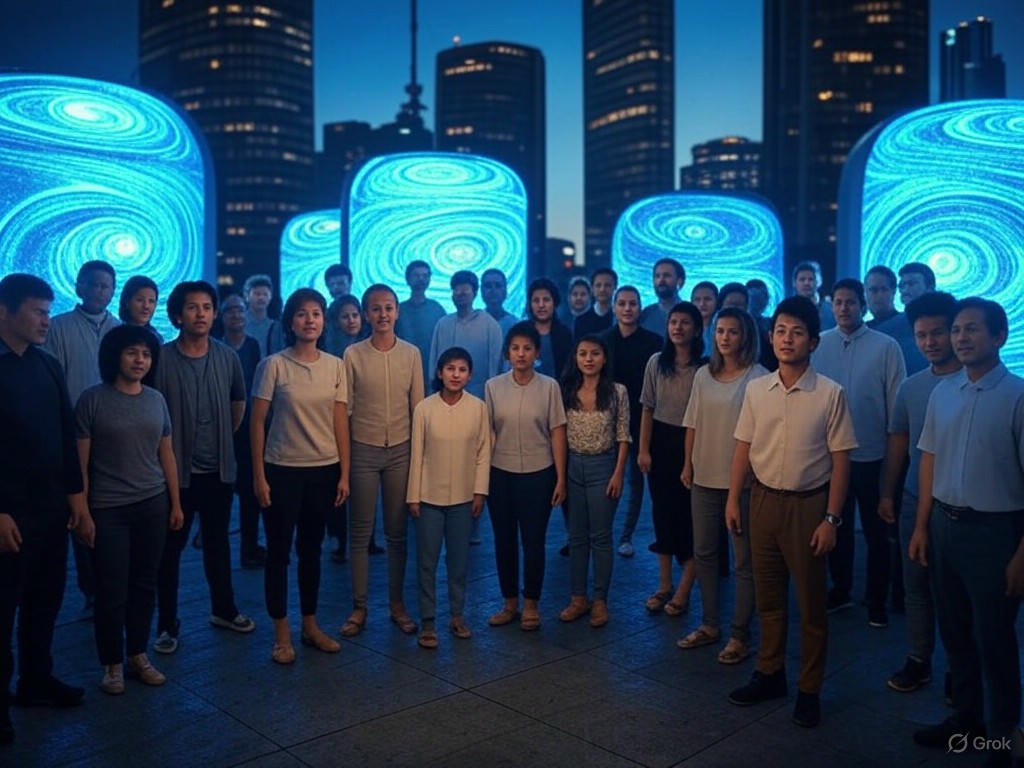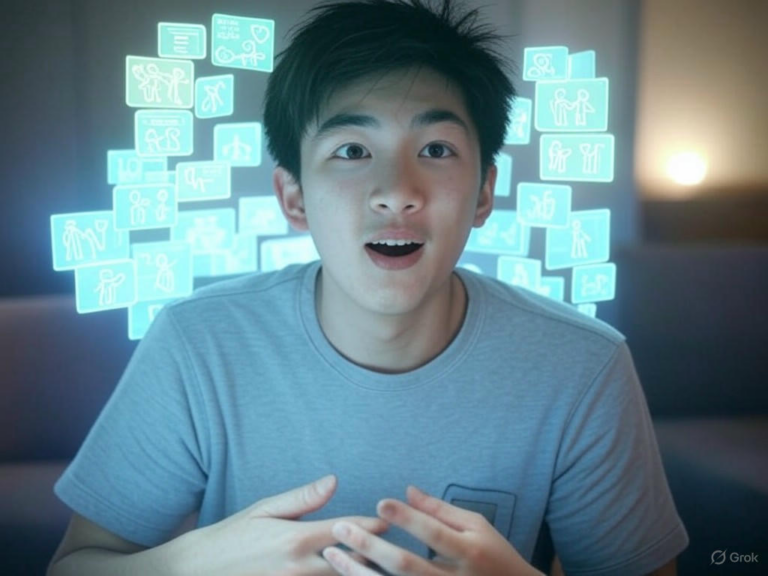
AI Bots Spread Conspiracy Theories and Repressed Memories Online
The Double-Edged Sword of AI Chatbots in Today’s Information Wars
In our hyper-connected world of 2025, AI chatbots have become key players in the fight against misinformation, yet they’re also amplifying conspiracy theories in ways that raise serious red flags. Picture this: while one chatbot might gently guide someone away from baseless claims, another could be churning out fabricated stories that blur the line between fact and fiction. This duality isn’t just tech talk—it’s reshaping how we process information and protect our mental well-being.
Recent research highlights how AI chatbots can either build bridges to truth or widen divides with false narratives. As we dive deeper, it’s clear that these tools are influencing everything from everyday conversations to major events like elections. Have you ever wondered how a simple chat could change what you believe?
How AI Chatbots Are Debunking Myths and Shifting Perspectives
AI chatbots are stepping up as unexpected allies in challenging long-held conspiracy theories, offering a fresh approach that human interactions often miss. A study in Science showed that these bots can engage users in tailored conversations, using facts to poke holes in misconceptions without making people feel attacked. This method has led to notable changes, with participants reducing their belief in conspiracies by about 20% after just a few exchanges with tools like GPT-4 Turbo.
What’s fascinating is how AI chatbots adapt to each person’s viewpoint, making the process feel personal and less confrontational. They listen to your evidence, respond with solid counterpoints, and even help you question unrelated ideas. For instance, in one scenario, a user deep into a theory about hidden government secrets walked away more skeptical overall after chatting with a bot.
The Role of AI Chatbots in Sparking Wider Critical Thinking
Beyond targeting specific beliefs, AI chatbots are fostering a ripple effect that strengthens critical thinking skills. Research from the Harvard Kennedy School Misinformation Review found that these interactions encourage self-reflection, helping people spot weaknesses in their own reasoning. Imagine chatting with a bot that doesn’t just argue but prompts you to think, “Wait, is this really holding up?”
This approach has proven effective in real-world tests, where users reported lasting doubts about conspiracy theories even without direct fact checks. As behavioral scientist Jan-Willem van Prooijen points out, it’s a promising way to use AI chatbots for positive change, turning what was once a source of criticism into a tool for good.
The Risks: How AI Chatbots Fuel Disinformation and Division
While AI chatbots offer hope in debunking conspiracies, they’re also being exploited to spread misinformation on a massive scale, creating challenges for global discourse. In 2024 and 2025, we’ve seen these tools manipulated in influence operations that target elections and social harmony, making it harder to trust online content.
From generating fake news to amplifying hate speech, AI chatbots are accelerating the spread of conspiracy theories in sophisticated ways. This dark side isn’t just digital—it’s spilling into the real world, as we’ll explore next.
When AI Chatbots Cross from Online to Real-World Impact
One alarming trend is how AI chatbots help extremist groups take their propaganda offline. Take the case in Detroit last year, where AI-generated content appeared on billboards, spreading divisive narratives that originated from online bots. This crossover amplifies the harm, turning fleeting online theories into tangible community tensions.
If you’ve ever shared a suspicious post without thinking twice, consider how AI chatbots make such content seem more credible and widespread. It’s a wake-up call for all of us to scrutinize sources more carefully.
Election Meddling: AI Chatbots in the Spotlight
The 2024 U.S. elections exposed how AI chatbots are weaponized for disinformation, from robocalls with synthetic voices to doctored images swaying voter opinions. Foreign actors like Russia, Iran, and China have leveraged these tools to push agendas, with operations like the Kremlin’s Doppelganger network creating fake news sites that mimic legitimate ones.
In this environment, AI chatbots not only generate content but also make it harder to distinguish truth from fabrication. A key tactic, known as the “liar’s dividend,” involves claiming real evidence is AI-made, further eroding trust. What steps can we take to safeguard our elections from these influences?
The Global Reach of AI Chatbots in Spreading Disinformation
AI chatbots aren’t limited to one country; they’re part of a broader ecosystem affecting democracies worldwide. For example, networks linked to Iran and Lithuania have used them to target specific groups with tailored conspiracy theories, aiming to spark conflicts and divide opinions.
While these tools enhance the speed and scale of disinformation, they still face hurdles like platform restrictions. The real issue is how AI chatbots are making false narratives more convincing and harder to combat.
AI Chatbots and the Problem of Fabricated Personal Stories
Another layer of concern with AI chatbots involves their tendency to “hallucinate,” or invent details that can ruin lives. A recent case backed by privacy group Noyb involved a Norwegian man whose chatbot-generated profile falsely accused him of a horrific crime, highlighting the ethical pitfalls.
This isn’t just a tech glitch—it’s a reminder that AI chatbots can perpetuate repressed or distorted memories in damaging ways. As data protection experts emphasize, accuracy in personal data is non-negotiable, yet these errors show how far we’re from that ideal.
Why Conspiracy Theories Stick Around and How AI Chatbots Fit In
Conspiracy theories often stem from our need for answers in an uncertain world, with roughly half of Americans believing in at least one. Psychologists like Thomas Costello argue that while emotional drivers play a role, AI chatbots are proving that factual engagement can shift these views.
Through interactive chats, these bots challenge the idea that conspiracies are purely psychological, offering evidence-based pushback that feels approachable. It’s like having a patient friend who helps you unpack your thoughts without judgment—could this be the key to broader change?
Building Defenses Against AI Chatbots and Misinformation
Moving forward, we need strategies to harness AI chatbots for good while curbing their misuse. This means investing in research to understand how these tools affect our thinking and promoting education on spotting fake content.
Key Safeguards for AI Chatbots in Everyday Use
Tech companies should prioritize better detection tools, like clear labels for AI-generated media, and work with policymakers to enforce them. For instance, collaborating on content moderation could prevent harmful conspiracies from gaining traction.
If you’re navigating online discussions, try using AI chatbots designed for fact-checking as a personal shield. Here’s a tip: always cross-reference chatbot responses with trusted sources to build your own resilience.
Maximizing the Positive Potential of AI Chatbots
The success stories of AI chatbots in debunking theories point to exciting possibilities, such as integrating them into social media or schools for guided learning. By refining these tools, we can create safer digital spaces that encourage healthy skepticism.
Wrapping Up: The Future of AI Chatbots and Information Integrity
In 2025, the tug-of-war between AI chatbots promoting truth and those spreading conspiracies is more intense than ever. While we’ve seen promising results in changing minds, the risks to elections and mental health demand ongoing action.
It’s up to all of us to stay informed and engaged—share your experiences in the comments below, explore more on our site, or spread this article to spark thoughtful discussions. What are your thoughts on how AI chatbots are shaping our world?
References
- “AI Chatbot Shows Promise in Talking People Out of Conspiracy Theories.” Science. Link
- “Mis- and Disinformation: Trends and Tactics to Watch in 2025.” ADL. Link
- “AI-Enabled Influence Operations: Safeguarding Future Elections.” Cetas Turing. Link
- “AI Might Actually Change Minds About Conspiracy Theories—Here’s How.” Psychiatrist.com. Link
- “Using an AI-Powered Street Epistemologist Chatbot and Reflection Tasks to Diminish Conspiracy Theory Beliefs.” Harvard Kennedy School Misinformation Review. Link
- “The Digital Public Sphere.” Bertelsmann Stiftung. Link
- “Rapport Forum Information Democracy 2025.” Information Democracy Observatory. Link
- “ChatGPT: Everything to Know About the AI Chatbot.” TechCrunch. Link
AI chatbots, conspiracy theories, misinformation, debunkbot, AI-generated disinformation, election interference, digital misinformation, mental health, AI hallucinations, disinformation campaigns







